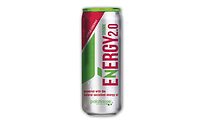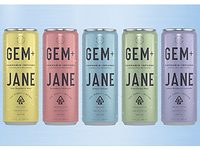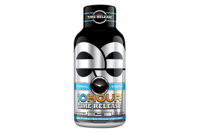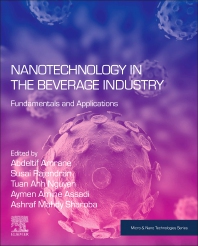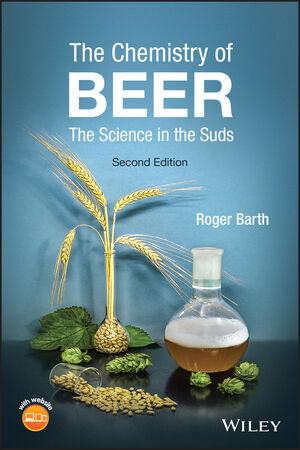Ingredient Spotlight
CBD, THC ingredients in-demand for beverage formulations
Quality advancements elevate CBD, THC for beverage formulations

Images courtesy of Jones Soda Co.
The cannabis market continues to show its staying power in the United States. Louisville, Colo.-based BDSA projects that U.S. cannabis sales will grow from $25 billion in 2021 to $42 billion in 2026. Earlier this year, BDSA estimated that edibles account for 15% of total legal sales in 2021. Of that segment, beverages made 5% of total edible sales, according to BDSA Retail Sales Tracking.
Although cannabis beverages still are a niche market, the interest in this space remains expansive.
“Current interest level is high for formulating beverages containing CBD and/or THC, with a bit more momentum on the THC side as beverages continue to increase their market share within regulated markets,” says Drew Hathaway, senior scientist at Caliper Foods, Commerce City, Colo. “On the THC side, many of the newer beverages now have lower THC dosages than the early market entrants in order to provide a more desirable flavor profile and a sessionable experience for the consumers. These lower dose THC beverages provide an ideal trial for new cannabis consumers, as drinking them approximates the familiar experience people have with enjoying alcoholic beverages.
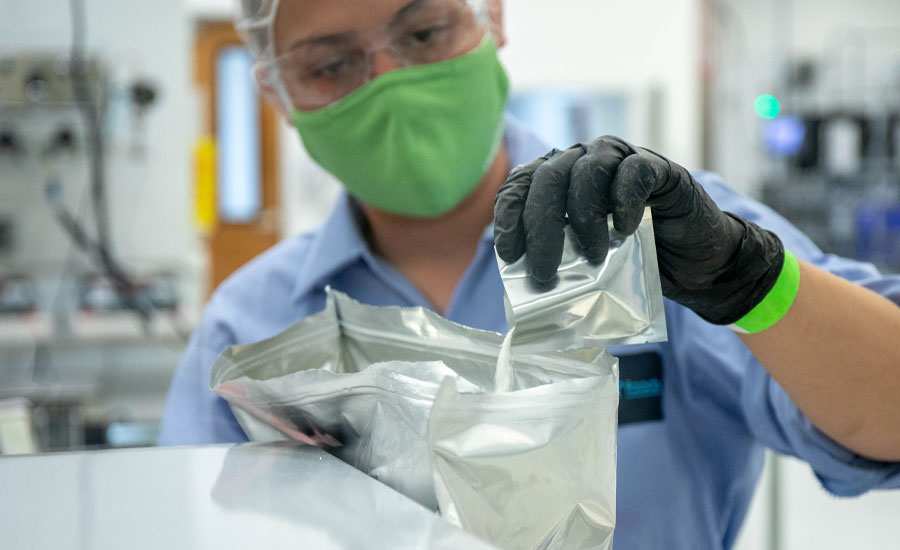
Image courtesy of Caliper Foods
“On the CBD side, interest has evolved from CBD-only beverages to combinations of CBD and minor cannabinoids and/or other functional plant-derived ingredients, such as ashwagandha, L-theanine, turmeric and mushroom extracts like reishi and lion’s mane,” he continues. “Many of these newer beverages on both sides are being marketed for specific use cases, such as sleep, relaxation and mood enhancement.”
Kyle Einhorn, vice president of sales at HempRise, Jeffersonville, Ind., also highlights the growing interest in beverage market for CBD among new entrants as well as launches by larger brands.
“Typically, when a beverage company is enquiring about hemp, they are seeking hemp protein and not CBD,” he notes. “CBD and other hemp extracts, as they relate to beverages and nutraceuticals, are added as a functional ingredient for mood, stress and sleep support.”
Einhorn explains that HempRise produces CBD and other hemp extract ingredients derived from hemp plants, but the company does not offer hemp protein for beverage formulation.
“Consumers are increasingly demanding more CBD and hemp related beverages in large part because beverages are convenient and portable consumption formats with a great delivery system for the functionalities today’s consumer seeks,” he says. “The bodies of science supporting CBD and hemp extracts for currently trending mood, stress and sleep support are strong and growing. Consumers are turning to not only CBD, but also minor cannabinoids as well, and we are seeing an increase in inquiries from manufacturers to also combine CBD with other scientifically supported botanicals to add increased function, from immune support to gut health, and more.”
Turning to science
What has aided CBD, THC and hemp ingredients to find homes within beverages can be attributed to food technologists’ dedication to working with these botanicals.
“Consumer interest and demand for CBD has grown considerably over the past several years and this, combined with food scientist and food science technology being more involved in the CBD market, it becomes possible to move well beyond a tincture dropper bottle as the common deliver method two years ago to the creation of more complex nano-emulsions such a HempNANO,” HempRise’s Einhorn explains.
He notes that prior to nano-emulsions being made commercially available for CBD, beverage manufacturers had limited options.
“Beverage companies can now produce a CBD infused beverage with confidence of not only knowing they have a very good beverage but, they also have continuing customer interest in CBD,” Einhorn says. “As indicated above, consumers are also demanding increasing functionality (aka ‘function stacking’), desiring multiple health support functions in one beverage, which also has brought about the evolution of other science-backed botanicals being added with CBD in beverages.”

Image courtesy of Happi
Caliper Foods’ Hathaway explains that the creations of water-soluble cannabinoid concentrates also benefits the beverage market in comparison to edibles.
“These infused beverages will have a much faster onset time (10-20 [minutes] vs. 45-90 [minutes]) and significantly higher bioavailability, making them one of the most desirable product formats for cannabinoid-infused ingestible products,” Hathaway says. “Those benefits are especially important for beverages with specific functionalities (e.g., THC for relaxation or CBD for anxiety relief) in order to provide a predictable and consistent experience for consumers.
“Caliper Foods has actually conducted multiple pharmacokinetic clinical studies through Colorado State University to confirm and objectively quantify those benefits, rather than relying on the anecdotal feedback we’ve received over the years,” he continues. “Our results show significant differences.”
Hathaway does emphasize, however, how crucial it is to utilize high-quality, water-soluble cannabinoid concentrates.
“Poorly created cannabinoid emulsions can have physical separation issues that prevent the cannabinoids from remaining evenly dispersed throughout the beverage over time,” he explains. “Some also utilize synthetic emulsifiers that add unnecessary bitterness and prevent clean label claims.”
Another issue is the same issue that can plague various botanical ingredients: taste profiles.
“Many cannabinoids such as CBD are inherently bitter, which can make it challenging to craft beverages that taste as enjoyable as similar cannabinoid-free versions,” Hathaway says. “Smart utilization of certain sweeteners and bitter maskers are capable of overcoming that challenge.”
HempRise’s Einhorn also notes the bitter notes that can accompany CBD and points to masking as a solution.
“HempNANO can be added without bitter blockers, and depending on taste profile desires, it’s very easy to add bitter blockers, sweeteners, or flavors to provide a different taste profile and mask bitterness,” he says. “Our parent company, Layn Natural Ingredients, is the largest manufacturer of stevia and monk fruit extract natural sweeteners in the world, offering three decades of manufacturer-direct innovation and experience with a host of additional natural taste solutions for beverages, including natural bitter blockers, sweetness enhancers, umami flavors and other sensory solutions.”
Bevy of opportunities
With the ingredient market supporting the advancement of CBD, hemp and THC formulations, experts note that beverage-makers are turning to many categories to implement the benefits of these botanicals.
Caliper Foods’ Hathaway points to tea, coffee, functional beverages, alcohol alternatives, seltzers and other new age beverages as ideal vehicles for CBD and THC.
“Cannabinoids like CBD and THC can have synergistic benefits with existing ingredients in many types of beverages (e.g., CBD/THC plus tea for relaxation; CBD plus caffeine for more balanced energy and focus, without the jitters),” he says. “The inclusion of CBD or THC can also target these beverages’ appeal to specific consumer demographics and help differentiate them from their competitors.”
However, HempRise’s Einhorn explains that the absence of FDA GRAS approval for CBD does limit its usage opportunities.
“The beverage categories we see the most interest and growth in is water and sparkling water as well as seltzers, teas, and mocktails/non-alcoholic beverages,” he says. “However, with the creation and introduction of HempAQUA for stick packs, the number of beverage categories a consumer can add CBD is virtually unlimited and provides much for flexibility for consumers to use CBD in a beverage.”
Despite the lack of GRAS approval, the interest in CBD, hemp and THC remains strong.
“The CBD market is continuing to emerge and grow,” Einhorn says. “As the number of clinical studies increases to continue to show the benefits of CBD combined with more and more consumers’ mindset and interest increasingly turning towards natural products for relief, CBD will continue to be in the forefront as an ingredient of choice.”
Caliper Foods’ Hathaway also prognosticates that the United States is primed for a proliferation of cannabis beverages.
“I expect the market for cannabis-infused beverages to continue to expand as product quality and options increase,” he says. “Part of this expected expansion is due to consumers continuing to become more aware of cannabinoid beverages’ fast-acting and higher-bioavailability advantages when compared to generation 1.0 oil-based products, such as tinctures, which have already started to fall out of favor.”
Looking for a reprint of this article?
From high-res PDFs to custom plaques, order your copy today!




